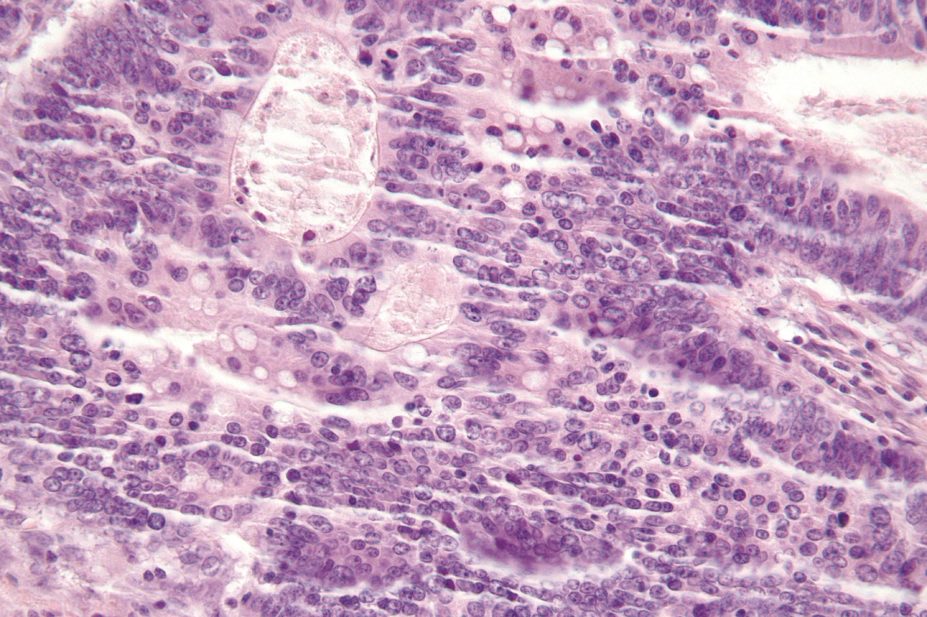
Nephron / Wikimedia Commons
Inactivation of the adenomatous polyposis coli (Apc) gene strongly predisposes people to develop colorectal cancer. A new approach to cancer prevention in such individuals is described in a mouse study reported in Nature (online, 5 November 2014)[1]
.
Researchers, led by Owen Sansom from Cancer Research UK, studied Apc-deficient mice and found that a signalling complex called mTORC1 is vital for tumour growth. They showed that mTORC1 promotes cell proliferation by controlling cell-cycle regulators; furthermore, the mTOR inhibitor rapamycin (known as sirolimus in the UK) suppressed tumour formation in Apc-deficient mice and halted tumour growth in mice with established tumours.
The data suggest that targeting mTORC1 “using existing, clinically approved drugs, such as the rapalogs, would provide clear therapeutic benefit for patients at high risk of developing colorectal cancer”, the researchers conclude.


